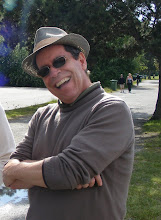
- How does religion contribute to the growth of humanity in an age which features scientific development, material advancement, political power, and indifference towards the spirit.
- What lessons does religion have to offer those who have put their faith in the computer and its offspring, the inter-continental ballistic missile, the moon rocket, and the miracles of telecommunication.
- What can religion say to the countless young people in every land who have seen how unable we are to cope with injustice, war, famine, racial and religious prejudice and therefore are tending to pull away from religious institutions.
 Noted scholar Huston Smith presented a thoughtful paper at the conclusion of the conference (it is included in the written proceedings as the "introduction" and is dedicated to Thomas Merton). Smith reflects on the transcendental, personal, and social dimensions of religion through the ages. He argues that religion must include all three of these components in various ways and that to remain relevant religion must become socially active and to remain religious such action must retain its ties with the transcendental and personal dimensions. He suggests that Eastern traditions can alert those of the West to the dangers of neglecting the personal and transcendental roots of religion and becoming "unrelievedly secular". He wraps up with this interesting quote from Timothy Leary's "High Priest".
Noted scholar Huston Smith presented a thoughtful paper at the conclusion of the conference (it is included in the written proceedings as the "introduction" and is dedicated to Thomas Merton). Smith reflects on the transcendental, personal, and social dimensions of religion through the ages. He argues that religion must include all three of these components in various ways and that to remain relevant religion must become socially active and to remain religious such action must retain its ties with the transcendental and personal dimensions. He suggests that Eastern traditions can alert those of the West to the dangers of neglecting the personal and transcendental roots of religion and becoming "unrelievedly secular". He wraps up with this interesting quote from Timothy Leary's "High Priest".
"They have lost their fire somehow. They have lost the pulse. Their thing was dying and they new it. The Protestants just weren't religious. Their great thing was their social instinct, their sense of equality. But in their protest against the superstition and authoritarian priesthood they had lost the magic. When they threw out the statues and the incense and the robes and the chanting (all sensory), it became social and rational and senseless."
TTFN... Rob"Never question the relevance of truth, but always question the truth of relevance." Craig Bruce




No comments:
Post a Comment